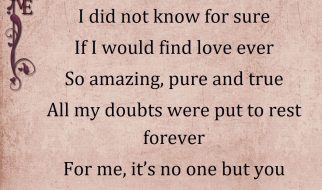The word Akata is a term of degradation, not a term of endearment. It is a divisive slur, and as a result it has caused the opposite of solidarity. It has contributed to the ?Otherizing? of native Black Americans and has driven a wedge between those who use the word Akata and those who get called the word Akata.
?Just told my bro about the girl whose name is La-a (pronounced Ladasha)..he is in shock at the ghetto-ness of akata ppl?? Dec 21, 2009 @ayodele_dg
?these ghetto akata gals smdh.. how do u pick up your phone in the middle of class?? Mar 2, 2011 @bambaataaaamir
?So 1st off, I?m not African American and I for damn sure are not ghetto. Calling me akata is like fighting words straight up.? Jan 2, 2014 @_LoveLO
How did we get here? First we must explore the role of Africans in the transatlantic slave trade to get a better grasp on the meaning of the word Akata and how it became used to describe Native Black Americans. Before anyone says that the word Akata can be used to describe Africans who visited or live in America, many Nigerians in America don?t use the term Akata to describe themselves, they use it to describe us.
Slave Trading in Nigeria
Although some believe that Africans did not participate in the transatlantic slave trade to a large extent, or that they participated only by coercion or force, many records tell a different story. When the Europeans began to explore the Coast of Africa looking for goods to trade, African dealers ?had a sophisticated network of trading alliances collecting groups of people together for sale.?[i] West Africa played a major role in the transatlantic slave trade and specifically Nigeria, which is an interior African country, was once home to the busiest slave market in West Africa. Nigeria had two main slave ports used to transport captives to slavery in the new world; one was Calabar and the other Badagry[ii]. From both of these ports slaves were sold to European traders for atleast 300 years, helping the local slave dealers to amass fortunes and engage in opulence. The tribes in Nigeria alleged to have played the largest part in the slave trade were Oro, Oyo and Hausa[iii].
In the 1500s Vlekete Market was ?the largest slave market in West Africa?[iv]. It was founded in 1502 for the purpose of selling slaves to the Europeans. About 300 people per day were sold to the new world through this market. Initially they would be held in a ?Brazilian Baracoon? with about 40 other captives waiting to be sold. Then ?They would cross a lagoon to the ?point of no return?, where the British vessels waited after another 30 minutes? walk, to sail them to the other end of the world?. This was the fate of our ancestors and this is what apparently makes us Akatas.
?It is reported that Badagry exported no fewer than 550,000 African slaves to America during the period of the American Independence in l787?[v]. Local tribesman sold slaves to European dealers for a variety of reasons and a variety of objects. Copper bars, iron bars, copper bracelets, silver coins, and gold. Dane guns, brass bells, gongs, flutes, mirrors, dry gin, whiskey, house wares, umbrellas, cowry shells, strips of cloth imported from India and other textiles used for African print clothes. While I listed these items in a concise manner, for Native Black Americans the thought of this is chilling. Our ancestors were sold into slavery, and endured an enormous amount of brutality and suffering because someone wanted house wares or a fancy umbrella, or a mirror. Because certain tribesman had an appetite for luxury or curiosity about the latest trinkets brought to Africa by the European, they sold us into slavery. This is a crime that cannot be forgiven, but must be resolved.
Some tribes became rivals because of the competitive nature of the slave trade. We always hear about debt and wars as a source of captives that would then be sold to the new world. However another source of captives was greed. ?A man?s economic and social statuses were assessed by the number of slaves he possessed. This type of slavery was known as domestic slavery.? Many Africans participated in the slave trade out of greed and a desire for opulence.
?Usually, many of these slaves were captives of war. But many of the slave owners on learning that European slave merchants were besieging Badagry with goods such as iron bars, cotton, wool, linen, whiskey, gin, metal wares, brass, alcoholic beverages, canons, mirrors, umbrellas, kettles, etc.and assorted wines in exchange for slaves wasted no time to bring their domestic slaves to Badagry with the hope of exchanging them for the listed items?[vi].
Although Domestic slavery as practiced in West Africa is incomparable with the system of slavery established by the white planters in America, it was the actions of these ?domestic slave owners? that led to that type of brutal and horrific chattel slavery that was perfected in the American South. And there are some similarities, on display at the Mobee Royal Family Slave Museum there are some of the same torture instruments used by African slave traders. Artifacts on display include ?Types of chains include a mouth lock to prevent the slaves from talking to each other and eating sugarcane from the plantation, and handcuffs for babies used to chain the children together so that they don?t disturb their parents while they worked.? It?s hard to believe that Africans did not willfully and enthusiastically participate in the slave trade when you evaluate what they received in exchange for the captives, methods that they used to subdue the enslaved, the infrastructure that they set up to hold and transport the captives and the sustained degradation of the enslaved and their descendants, hence the term Akata.
Use of the word Akata on Twitter
In the past 10 years with the explosion of twitter use, we are allowed an insight into the minds of people that we may not get from a personal interaction. It is something about twitter that makes people say what on their minds. Because of this, for the first time Native Black Americans were able to see on display how we were classified as a whole by a large part of Nigerian society. Many 1st and 2nd generation Nigerians Americans took to twitter to voice their frustration with Native Black Americans or ?Akatas?, for simply just existing. According to many twitter users from Nigeria, Akatas are lazy, ghetto and loud. According to many Nigerians, their parents warned them against marrying ?Akatas? and threatened consequences if they did. They call it the ?Don?t marry an Akata talk?.
?You know your African when your mom says..you can marry anyone you want but PLEASE dont bring home an akata man to me!? @_LadyLuckk Apr 9, 2010
?1. dont marry an akata 2. dont get arrested. i?ll not bail U out. 3. dont join the air force, marines & such. 4. dont get any1 pregnant.? @adewus4real Oct 25, 2012
?Get all A?s/Dont marry an #Akata/Become a doctor,lawyer or engineer?you?ll be fine ? #AfricanParents? @NkObufor Jan 29, 2013
?#momsalwaystoldme dont marry an Akata..stay with the Nigerians? @loveifunanya Sep 18, 2010
MOM ALWAYS SAID ?Dont marry an Akata cause i wont come to your wedding? @Leggs_4_Dayz Oct 14, 2011
So the first obvious implication from these tweets is that the word Akata is a word that is deeply ingrained and used in Nigerian culture. These tweets show parents using the word akata in conversation with their children, who most likely will teach the word to their children. The second point of emphasis is that the word Akata and the way that it is used in the above tweets signify to mean a bottom caste, one unfit to marry, because the marriage would cause shame and ridicule. Some twitter users even indicate that their parents threatened to not come to their wedding or even disown them if they happened to marry an ?Akata?.
Recently a group of Naija Americans? not wanting to be publicly associated with the racism deeply ingrained in Nigerian society towards Black Americans began to launch an effort to willfully deceive people about the word Akata and the way it is used. Some began to change definitions in online dictionaries and translations to make Akata seem like a positive term. ?Contrary to popular opinion among non-Yorubas and some Nigerians or Africans, who does not understand this word, akata does not mean cotton picker or slave and it is not derogatory?[vii].
Some of them even suggested that the term in its original meaning of ?Wild animal? or ?wild cat? was ascribed to Native Blacks because the Black Panther Party used a panther as their logo and that was one of the well known groups in the 1960s. None of these rebuttals are plausible nor do they make any sense and besides there are many Nigerians who openly admitted what the word means and how it is used.
After calling us Akatas and lazy and ghetto many 2nd generation West African immigrants would like us to go and support movies that they star in at the box office?..wait, its actually deeper than that. We were sold into slavery as a people, not abandoned, willfully traded for various forms of currency. After 400 years of oppression through chattel slavery, Jim Crow lynchings, convict leasing, and mass incarceration; The people that descended from tribes that sold us into slavery and profited from the slave trade arrived on the shores of the country that we built and began to degrade us for being sold into slavery?.and now they want our support at the box office. On top of that, they are getting the roles of the historic freedom fighters who risked and sacrificed their lives to fight for the condition of #ADOS in this country. Realize that we wouldn?t need Harriet Tubman to help us escape had we not been sold into slavery in the first place.
?1. Cynthia Erivo as Harriet Tubman. 2. David Oyelowo as MLK 3. Chiwetel Ejiofor in ?12 Years a Slave? 4. Carmen Elizabeth Ejogo as Coretta Scott King 5. NOW Daniel Kaluuya as Fred Hampton Still don?t think we?re being replaced? #ADOS? @BreakingBrown Feb 19, 2019
[i] ?The capture and sale of enslaved Africans? http://www.liverpoolmuseums.org.uk/ism/slavery/africa/capture_sale.aspx
[ii] ?How Nigeria is Preserving the Legacy of Its Slave Ports? https://theculturetrip.com/africa/nigeria/articles/how-nigeria-is-preseving-the-legacy-of-its-slave-ports/
[iii] ?The Transatlantic Slave Trade? https://rlp.hds.harvard.edu/faq/transatlantic-slave-trade-nigeria
[iv] [iv] ?How Nigeria is Preserving the Legacy of Its Slave Ports? https://theculturetrip.com/africa/nigeria/articles/how-nigeria-is-preseving-the-legacy-of-its-slave-ports/
[v] ?Badagry, Nigeria Their History in the Atlantic Slave Trade?
https://www.freemaninstitute.com/nigeria.htm
[vi] ?History of the Mobee Family of Badagry and Their Involvement in the Slave Trade?, Olusegun Mobee
[vii] ?Akata? https://www.urbandictionary.com/define.php?term=akata

